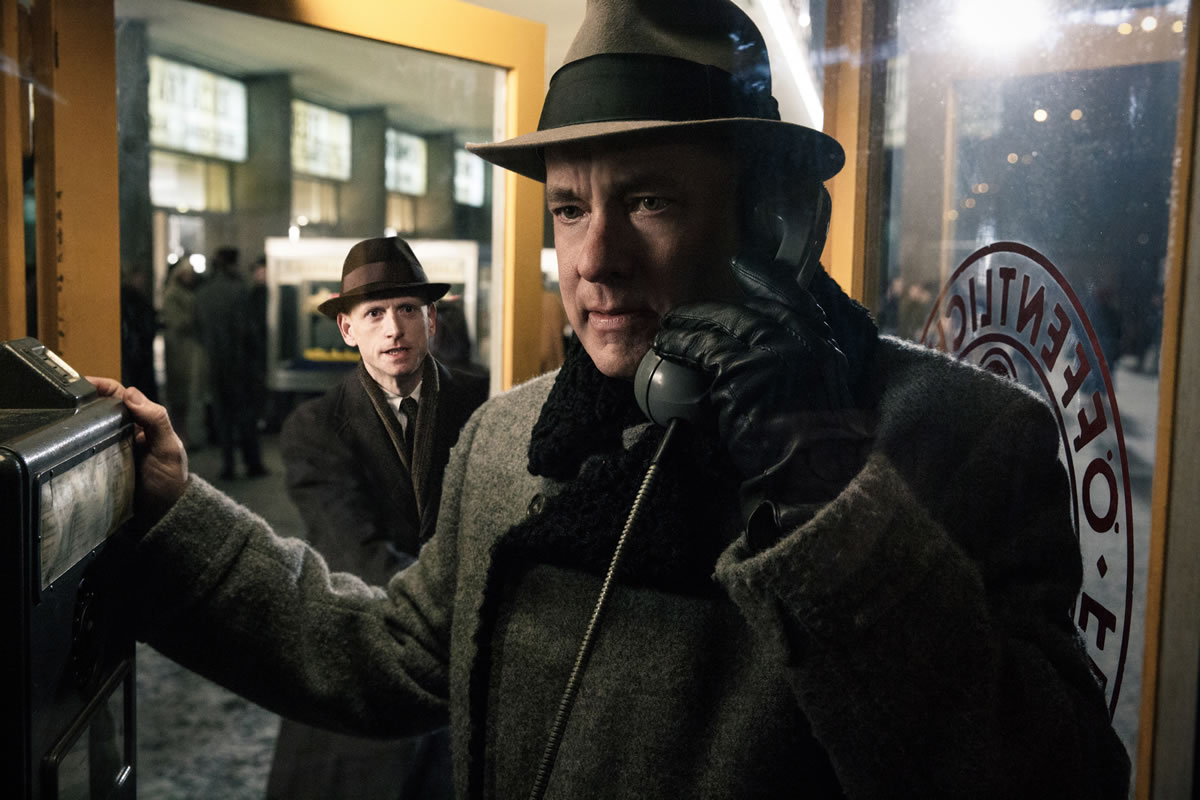It’s brilliant, really. What’s the quickest way to establish the humanity of two leading characters in a Cold War drama? Give them both the sniffles.
“Bridge of Spies” does that, and more. The film is an anomaly — a confident, slightly square, highly satisfying example of old-school Hollywood craftsmanship, starring a major movie star brandishing a briefcase, and a handkerchief, rather than a pistol.
The trailers for director Steven Spielberg’s first film since the 2012 “Lincoln” aren’t quite telling the truth. They promise a ridiculous degree of screw-tightening suspense amid imminent global destruction. The movie’s narrative (more or less true) contains those elements, but sparingly. It’s closer to John le Carre than to Tom Clancy. Some moviegoers at a recent sneak preview seemed thrown by the rhythm of the thing, its devotion to steady, sure-footed storytelling. It’s best to know going in that this isn’t “Argo,” entertaining as that film was, culminating in bad guys running around tarmacs with machine guns.
On the other hand, Spielberg has no interest in making a documentary. He’s in love with the ravishing fakery of the movies he watched as a kid, the ones he went on to re-investigate decades later as a great American filmmaker. Adapted freely from the historical record, like any good fact-based but not fact-bound docudrama, “Bridge of Spies” honors the righteous underdog, triumphant.



